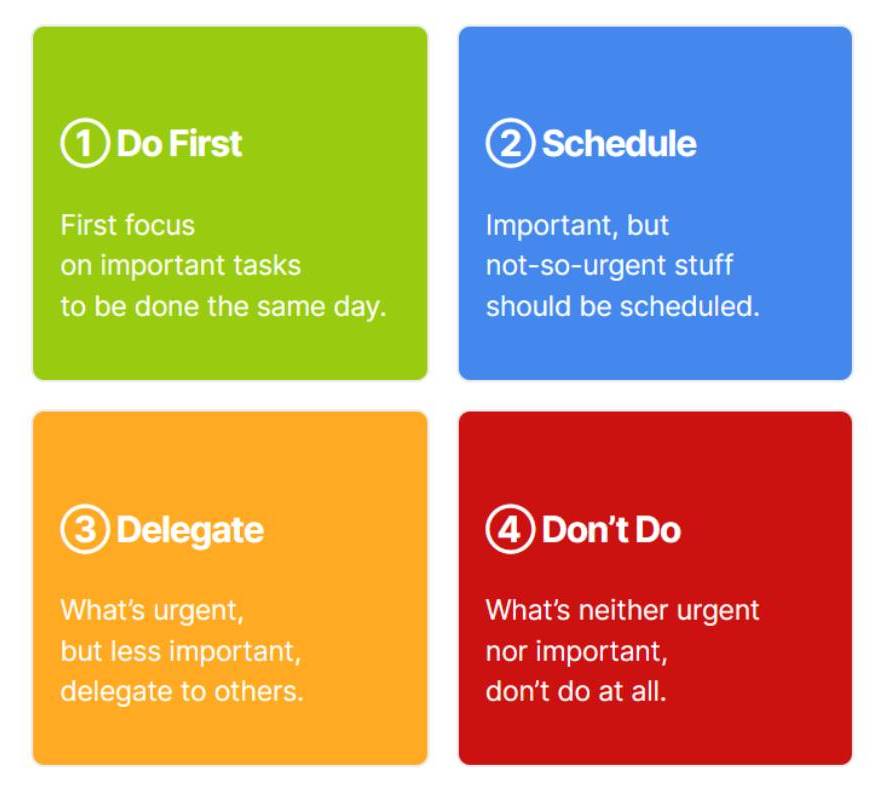In our fast-paced world today, getting a grip on time management isn’t just a useful skill; it’s absolutely essential for achieving your goals and increasing your productivity.
Many people struggle with managing their time effectively, which can lead to stress, missed deadlines, and reduced productivity. But don’t worry, we’re here to help you uncover the secrets to taking charge of your time so you can accomplish more in less time.
Here are 10 effective ways to help me manage my time, and I think it could help you, too.
Related article: 5 Methods for Minimising Resource Risks in Project Management
Define Your Objectives and Priorities
The first step in effective time management is setting clear objectives and priorities. Think of your objectives as the destination on a road trip; you need to know where you’re headed! So, figure out what you want to accomplish and identify the most important tasks that will help you reach those objectives. Having a clear sense of purpose is like having a map; it’ll keep you on track and motivated throughout the day.

Build a Daily Schedule
Now, picture a daily schedule as a handy tool, like a compass. It guides you on what to do and when to do it. A well-organized daily schedule is a potent weapon for managing your time. Assign specific time slots for different tasks and activities, including work, personal commitments, and relaxation. Stick to your schedule as closely as possible to make the most of your day.
Beat Those Time-Thieving Distractions
Imagine distractions as pesky little time bandits. They can seriously mess up your productivity and gobble up your precious time. Identify the usual suspects in your surroundings that distract you and take action to kick them out or lessen their impact. This might mean silencing your phone notifications or finding a peaceful spot to get your work done. Think of it as a mission to guard your time.
Harness the Power of Time Blocks
Time blocking is all about grouping similar tasks and tackling them during dedicated time blocks. This strategy keeps you laser-focused on one type of task at a time, making you more efficient and sparing you the mental strain of constant task-switching. It’s like giving your work a turbo boost, making it smoother and less exhausting.
Share the Load – Delegate Tasks
You don’t have to be a one-person show. Sometimes, you can ask for assistance or divvy up tasks with others. Don’t hesitate to hand off tasks when it’s doable. Delegating frees up your time to concentrate on more significant responsibilities and lets others contribute to the team’s triumph. Remember, you don’t have to carry the whole load by yourself.
Put the Right Tasks First
Not all tasks are born equal. You can sort your tasks using the Eisenhower Matrix, which divides them into four groups:
- Urgent and important (Deal with them immediately)
- Not urgent but important (Plan for these)
- Urgent but not important (Delegate them)
- Neither urgent nor important (Consider removing them)
To maximise your productivity, start with the tasks that are both important and urgent. Remember, not all tasks hold the same weight. Some are pressing and crucial, while others can wait. Focus on what’s both important and urgent to accomplish more.
Say No to Multitasking
Multitasking might seem like a time-saver, but it often backfires and reduces your productivity. It’s better to give your full attention to one task. You’ll complete it faster and do a better job.
Take Regular Breathers
Imagine your workday as a marathon, not a sprint. Taking short breaks is like catching your breath during the race. Working continuously for long stretches can lead to burnout and decreased productivity. Include short, regular breaks in your schedule to recharge and stay energised. A 5-10 minute break every hour can work wonders.
Also read: 10 Great Business Ideas For Women Entrepreneurs

Harness Technology Wisely
Technology can be a blessing or a curse when it comes to time management. It can be your ally or your adversary, depending on how you use it. While it offers numerous tools to boost productivity, it can also be a source of distractions. Use apps and tools that help you work better, but be mindful not to get lost in endless social media scrolling.
Check and Adapt
Time management isn’t a one-and-done deal; it’s a continuous adventure. Periodically, take a look at your time management methods to figure out what’s effective and what could use some enhancements. Think of these reviews as checking your map on a journey where the road can change. Stay open to adjustments and tweak your plans as necessary.
Final Thought
Mastering time management is a skill that can make a big difference in both your personal and professional life. Keep in mind that it’s an ongoing journey, so stay dedicated to honing your skills.




